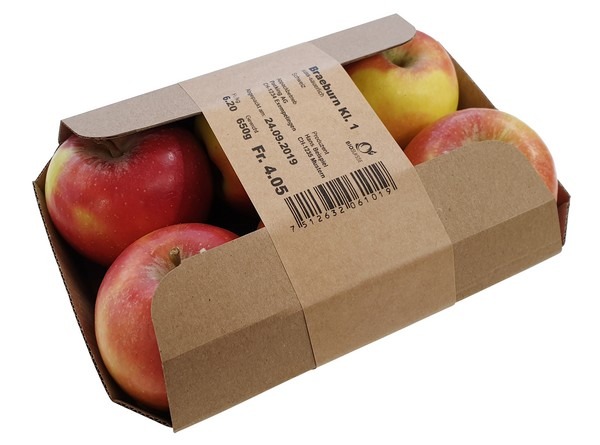The produce packaging market is anticipated to enjoy robust demand, with a total value of USD 34,470.9 million in 2023 increasing to USD 44,447.6 million by 2033. Between 2023 and 2033, FMI expects the sales of produce packaging to expand at a 2.6% CAGR.
Changing eating habits and lifestyles may cause people to buy more packaged goods, which could have a big effect on the produce packaging. A rise in the amount of disposable income per person and a rise in the population is expected to help increase the demand for the product because of its high barrier properties, long shelf life, and safety for the consumer.
Explore In-Depth Analysis—Click Here to Access the Report!
People want natural, high-quality foods that haven’t been processed much or at all, don’t contain preservatives, and last longer. Food is packaged for many reasons, such as to keep out dirt and bugs, to make it easier to carry, and to control how much food is eaten. Sustainable packaging helps reduce food waste and loss by preventing food-borne diseases, and chemical contamination, and keeping the quality of food.
Blockchain produce packaging is a key trend that is gaining popularity in the produce packaging market. Blockchain is a way to store data that makes system updates, hacks, and fraud very hard or impossible. Blockchain makes it possible for customers and businesses to track products back to their place of origin.
It’s as easy as putting a QR code on a package to get information quickly. This smart feature has increased transparency and quality assurance for customers, which is why many companies have already adopted blockchain for the same reason.
Nestlé, a Swiss food company, put a QR code on each package of the Swedish coffee brand Zogas in 2020. Consumers have access to information about coffee farmers, harvest times, roasting times, and shipping certificates that go back to where the coffee was grown. IBM FoodTrust’s blockchain technology platform is used to do these things. This package’s new idea is likely to appeal to coffee drinkers who care about doing the right thing and who value sustainability.
In November 2021, Graphic Packaging Holding Company, which is a United States-based vertically-integrated provider of sustainable consumer packaging solutions, acquired AR Packaging Group for USD 1.45 billion.
The acquisition is expected to help Graphic Packaging strengthen its position as a provider of sustainable fiber-based packaging alternatives to consumer-packaged goods companies around the world. AR Packaging Group is a company in the United States that makes fiber-based consumer packaging.
Key Takeaways
- The corrugated boxes segment held a share of 35.5% in 2022.
- Market growth is expected to be driven by the rising demand for fast food.
- Japan produce packaging market is expected to record a CAGR of 6.3%.
- The demand for produce packaging is likely to be slowed down by quickly changing technologies and rising costs of raw materials.
Competitive Landscape
The produce packaging market is marked by differentiation, growing service penetration, and a lot of competition. Innovation in design, technology, and application can give a business a sustainable competitive edge.
During the forecast period, the company concentration ratio is expected to grow at a faster rate, since many players see the market as a good chance to combine their products. The players in the market are affected by things like short product development cycles and high barriers to leaving. Overall, the level of competition is likely to be very high.
Key Players
- Sealed Air Corporation
- Bemis Company
- Georgia-Pacific LLC
- Pactiv LLC
- International Paper Inc.
- Smurfit Kappa Group
- Amcor Limited
- Mondi Group PLC
- DS Smith PLC
- KapStone Paper and Packaging Corporation
Recent Developments:
- In May 2022, Berry Global Group, Inc. announced that it may work with Cleanfarms and Poly-Ag Recycling on a closed-loop plan to improve Canada’s circular economy. The recycling program in Canada was started at the beginning of 2022. Its goals are to recover used agricultural films, process recovered grain bag material, and make new products with recycled content.
- In October 2021, the Smurfit Kappa Group paid US$ 390 million to buy the 600,000-ton containerboard mill Verzuolo in Northern Italy. This mill adds to what the company is already doing and is strategically placed near the port of Savona, which helps the company a lot with operations and logistics.
Key Segmentations: Produce Packaging Market
Application:
- Food Grains
- Vegetables
- Fruits
End User:
- Growers/Shippers
- Re-packers
- Retail Stores
Packaging Type:
- Corrugated Boxes
- Bags & Liners
- Plastic Containers (Cups, Tubs, Bowls, etc.)
- Trays
- Other Packaging (Plastic Film, Molded Pulp Containers, Wooden Crates, etc.)
Region:
- North America
- Latin America
- Europe
- Asia Pacific excluding Japan (APEJ)
- The Middle East & Africa
- Japan
About Future Market Insights (FMI)
Future Market Insights, Inc. (ESOMAR certified, recipient of the Stevie Award, and a member of the Greater New York Chamber of Commerce) offers profound insights into the driving factors that are boosting demand in the market. FMI stands as the leading global provider of market intelligence, advisory services, consulting, and events for the Packaging, Food and Beverage, Consumer Technology, Healthcare, Industrial, and Chemicals markets. With a vast team of over 400 analysts worldwide, FMI provides global, regional, and local expertise on diverse domains and industry trends across more than 110 countries.
Contact Us:
Future Market Insights Inc.
Christiana Corporate, 200 Continental Drive,
Suite 401, Newark, Delaware – 19713, USA
T: +1-347-918-3531
For Sales Enquiries: sales@futuremarketinsights.com
Website: https://www.futuremarketinsights.com
LinkedIn| Twitter| Blogs | YouTube
